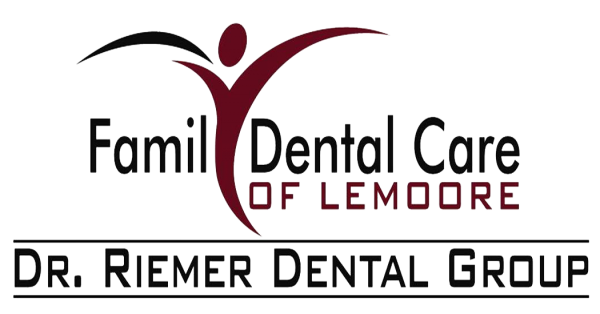Restorative Dentistry
Restorative dentistry is a branch of dentistry focused on diagnosing, treating, and restoring damaged or missing teeth and surrounding oral structures to their optimal function and aesthetics. This field encompasses various procedures, such as fillings, crowns, bridges, implants, and dentures, all aimed at repairing decayed, fractured, or damaged teeth, or replacing severely damaged or lost teeth.
Restorative dentistry enhances a patient's appearance and ability to chew properly and plays a crucial role in maintaining overall oral health and preventing further dental issues. By restoring damaged teeth and structures, restorative dentistry helps individuals regain confidence in their smiles, improves their quality of life, and promotes long-term oral health and well-being.
Additionally, timely intervention through restorative procedures by Dr. Riemer Dental Group in Lemoore, CA, can prevent more extensive and costly treatments in the future, making it an essential component of comprehensive dental care.
Importance of Restorative Dentistry
Preventing Further Damage
One of the primary objectives of restorative dentistry in Lemoore, CA, is to prevent the progression of dental issues. By addressing problems such as cavities, cracks, or infections in their early stages, restorative procedures help prevent further damage to the teeth and surrounding tissues. This proactive approach not only preserves natural teeth but also minimizes the need for more extensive and costly treatments in the future.
Preservation of Natural Teeth
One of the primary goals of restorative dentistry is to preserve natural teeth whenever possible. With advancements in dental materials and techniques, dentists can effectively repair and strengthen compromised teeth, avoiding extraction. Preserving natural teeth maintains oral function, supports facial structure, and prevents adjacent teeth from shifting, thus keeping overall dental harmony.
Enhancing Oral Function
Beyond preserving dental health, restorative dentistry is pivotal in enhancing oral function. Missing or damaged teeth can significantly impact chewing ability, speech, and comfort. Through procedures like fillings, crowns, bridges, and implants, restorative dentistry restores proper bite alignment and enables individuals to eat, speak, and smile confidently and efficiently. Contact us today!
Boosting Confidence and Self-Esteem
The aesthetic aspect of restorative dentistry should be noticed. A healthy, beautiful smile can profoundly impact an individual's confidence and self-esteem. Whether replacing a missing tooth with a dental implant or restoring a chipped tooth with a porcelain crown, restorative procedures not only improve the smile's appearance but also instill a sense of pride and self-assurance in patients.
Improving Quality of Life
The most significant importance of restorative dentistry lies in its ability to improve overall quality of life. Dental issues such as tooth decay, gum disease, or missing teeth can cause pain, discomfort, and embarrassment, affecting daily life. By addressing these issues and restoring oral health and function, restorative dentistry enables individuals to enjoy life fully, free from dental discomfort and insecurity.
The Procedures in Restorative Dentistry
Dental Fillings
Dental fillings are one of the most common restorative procedures dentists perform worldwide. They are used to repair teeth damaged by decay or cavities. During the procedure, your dentist at Dr. Riemer Dental Group removes the decayed portion of the tooth and fills the cavity with a suitable filling material, such as composite resin. Dental fillings restore the tooth's shape, function, and strength while preventing further decay and protecting the inner structures from infection.
Dental Crowns
Dental crowns, commonly known as caps, are custom-made restorations that cover the entire visible surface of a damaged or weakened tooth. They restore the shape, size, strength, and appearance of a tooth that has been extensively decayed, fractured, or undergone root canal therapy. The procedure involves preparing the tooth by removing any decay or damaged tissue, taking impressions for the crown, and placing a temporary crown while the permanent one is fabricated. Dental crowns are typically made from porcelain, ceramic, metal, or a combination of materials, providing durable and natural-looking results.
Dental Bridges
Dental bridges are prosthetic devices that replace one or more missing teeth by anchoring artificial teeth (pontics) to adjacent natural teeth via crowns or to dental implants. They help restore chewing function, prevent shifting of surrounding teeth, and improve facial aesthetics. The procedure involves preparing the adjacent teeth (abutments) by reshaping them to accommodate the bridge’s attached crowns, taking impressions for the bridge, and placing a temporary restoration while the permanent bridge is fabricated. Dental bridges can be made from porcelain, ceramic, metal, or a combination of materials, providing a stable and durable tooth replacement solution.
Dental Implants
Dental implants are titanium posts surgically placed into the jawbone to replace missing tooth roots. They serve as the foundation for attaching artificial teeth, such as crowns, bridges, or dentures. Dental implants provide several benefits, including stability, durability, and preservation of jawbone density. The procedure involves implant placement surgery, followed by a healing period during which the implant is integrated with the surrounding bone (osseointegration). Once healed, a custom-made restoration is attached to the implant, restoring function and aesthetics.
Root Canal Therapy
Root canal therapy, also known as endodontic treatment, is performed to save a severely decayed or infected tooth from extraction, when possible. It involves removing the infected or damaged pulp from the inside of the tooth, disinfecting the root canals, and filling them with a biocompatible material to seal and protect the tooth from further infection. Root canal therapy relieves pain, preserves the natural tooth structure, and prevents the spread of disease to surrounding tissues.
Restorative dentistry is not just about repairing teeth; it's about restoring hope, confidence, and quality of life. If you're experiencing dental problems, visit Dr. Riemer Dental Group at 446 C St, Lemoore, CA 93245, or call (559) 924-2520 to consult with our dentist to explore your options and embark on a journey towards a healthier, happier smile.
